 Another Stereotype of the Month entry:
Another Stereotype of the Month entry:
 Another Stereotype of the Month entry:
Another Stereotype of the Month entry:
An editorial from the Wall Street Journal:
REVIEW & OUTLOOK
March 1, 2002
Big Chief Pataki
New York State has a new Indian chief and gambling boss, two jobs that seem to go together these days: Governor George Pataki. We doubt New Yorkers will enjoy the spoils as much as the politicians, lobbyists and gambling interests who cut this sweetheart deal.
In the wake of September 11 and facing a budget deficit, Chief Pataki rushed a package through the state legislature granting himself the power to negotiate gambling compacts with Indian tribes for six new casinos. It promises to be a political jackpot for the Republican Governor, who faces re-election this fall and claims gambling will help the economically depressed Buffalo/Niagara Falls and Catskills areas. In return for cashing in, the Indians are also settling some ancient land claims. Mr. Pataki also traded beads with unions, which won the right to organize some of the new casinos.
The three casinos in Buffalo and Niagara Falls would be owned by the Seneca Indian Nation but operated by big gaming companies. The Catskills casinos — an easy drive from New York City — most likely would go to the Mohawk and the Oneida, with the same white guys behind the curtain. Slot machines, currently banned in New York, would be legalized and placed in the casinos. Electronic slot machines known as video lottery terminals would go up at horse-racing tracks throughout the state. New York also joins the Powerball lottery operating in more than 20 other states. All this will allegedly bring jobs to local economies and at least $1 billion per year into state coffers.
Great White Father Pataki is just the latest pol to cash in on the nationwide Indian-sponsored gambling boom. Legislative moves in California in the past two years have created an Indian casino gold rush in that state. Nationally, Indian gambling has exploded into a $10 billion a year industry shadowed by controversy. Currently there are nearly 200 federally designated "gaming tribes." But because of the windfall that usually follows, about 200 more groups are petitioning the Interior Department's Bureau of Indian Affairs for tribal status.
But along with the money come other things: lowlifes and organized crime, drugs, prostitution, loan sharking and money laundering. The mob infiltrates and corruption in local government often follows. For a small minority gambling is a serious addiction, wrecking lives and families. In rural Connecticut around the Mashantucket Pequot Indians' Foxwoods Casino, traffic on small country roads has tripled, accidents have increased and local services are under severe stress. As for the economic development argument, we recommend a close look at Atlantic City, where the mean streets behind the glittering boardwalk have benefited little from the casino boom.
Mr. Pataki's deal highlights many of the problems with Indian gaming today. One is a tribal recognition process that is out of control and rife with special favors. Land controlled by Indian tribes has a special sovereign status, largely exempt from state and federal regulation. Backed by investors looking to hit the casino jackpot, Indian groups, some with highly dubious claims to Native American authenticity, are pounding on the doors of the Interior Department and state legislatures.
A recent General Accounting Office report concluded that tribal recognition is increasingly not about merit but "the resources that petitioners and third parties can marshal to develop a successful political and legal strategy." Among the petitioners for tribal status are the Ramapough Mountain Indians, a group of about 3,000 souls on the border of New York and New Jersey; doubtless another casino would follow federal recognition.
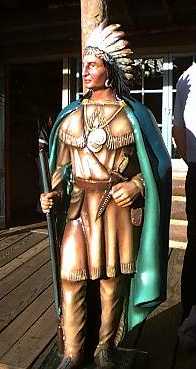
Federally approved land-trust swaps are another bit of gaming corruption. High-powered lobbyists representing big gaming syndicates line up the land swaps. Designated Indian tribes are granted the right to purchase real estate near major metropolitan areas, which is then taken into trust by the government on behalf of the Indians, converting it into tribal land. The swaps are subject to Interior Department approval and often are the cause of much consternation in local communities. Catskills land swaps for casinos are on the table in New York in Mr. Pataki's pow-wows with the Mohawk, and with the Oneida Indian Nation for a settlement of a long-running land dispute in central New York.
Mr. Pataki still must negotiate gambling compacts with the tribes, get federal approval and survive court challenges. In January, a coalition of anti-gambling forces filed suit in state court charging that the Pataki casino bill was unconstitutional because the New York State Constitution prohibits commercialized gambling. Midnight passage of the bill, the suit charges, was a "farcical exercise of 'representative democracy' " and an assault "on the welfare and morals of the citizenry."
We wish them luck. The history of Indian gaming is that, like the craps tables themselves, it promises more than it ever delivers. Beyond November and beyond New York, Mr. Pataki is said to have his eyes on the post-Bush Presidency. His gambling deal may come back to haunt him. Indian casinos have become a political fixers' game that is bad social and economic policy.
Responses to the "Big Chief" editorial
March 05, 2002
'Big Chief Pataki' editorial takes hit from Mohawks
By Steve Israel
Times Herald-Record
sisrael@th-record.com
IS THE WALL STREET JOURNAL RACIST?
Check out what the newspaper wrote in its Friday editorial, which blasted Gov. Pataki for allowing six Indian casinos in New York.
It calls the governor "Big Chief Pataki." It says Pataki "traded beads" so the casinos would hire union workers. What's more, those casinos would actually be run by "the same white guys behind the curtain."
Finally, the newspaper, owned by the parent company of the Times Herald-Record, Dow Jones, talks about "Mr. Pataki's pow-wows with the Mohawk and with the Oneida Indian Nation ..."
No wonder the Mohawk spokeswoman is hopping mad.
"We have witnessed the condoning of racism, whether by Donald Trump [who paid for a slew of anti-Mohawks ads] or The Wall Street Journal," says Rowena General. She's right.
Stereotyping any group of people is wrong.
Shame on you Wall Street Journal.
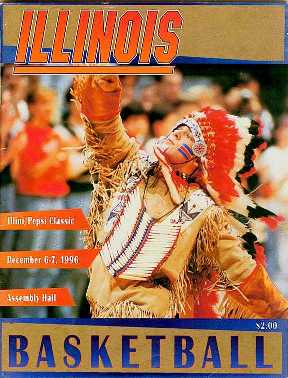
The Wall Street Journal loses respect
Posted: March 07, 2002 -- 3:00PM EST
It will be very difficult from this day forward to have serious respect for The Wall Street Journal, a newspaper with which we have often disagreed but had at least appreciated for its range of writers and coverage and for its long-term existence. The appreciation vanished this week as we read The Journal's March 1 editorial, entitled "Big Chief Pataki," which excoriated New York Governor George Pataki and took a pretty wide stereotypical and prejudicial swipe at American Indians.
Now, the criticism of a politician is not beyond our scope. No doubt, over the seasons, we have taken the New York governor to task ourselves on a number of issues. Most recently, however, we have seen his approach of using Indian economic recovery options to ameliorate his state's financial woes and land claims as pragmatic and open-minded. The New York governor, we believe, is generally on the right track with Indian nations across the state. His plan to negotiate six new casino compacts with Indian nations, although still saddled with some political baggage, has opened up diplomatic channels and fostered government to government negotiations that could lead to real economic gains across the board.
The Wall Street Journal, in its editorial against the Pataki plan, did not rely on serious information. It chose instead to marshal innuendo and misinformation of the cheapest order and displayed a complete lack of understanding for the Indian gaming industry and its resulting economic, social and cultural benefits.
To start, the editorial called Pataki New York State's "new Indian chief and gambling boss." The appellation of the title "chief" is familiar to every American Indian who has ever been stereotyped, in the workplace and other public situations. Being called "chief" for Indians, when delivered with the same derisive tone as The Journal's editorial, is tantamount to a black man being called "boy," and is just as insulting. Perhaps the insult will give the governor an idea of what is like to be an Indian.
Later in the editorial, The Journal also calls Pataki "Great White Father," another term we had thought hackneyed to death long ago. The name-calling is belittling and prejudicial and it marks the editorial down to the lowest of journalistic levels. But The Journal doesn't stop there. The gratuitous insults are matched in their appalling intentions by its dishonest arguments. Apparently driven by a nearly religious hostility toward Indian gaming, the editorial makes these main points:
o Gaming enterprises are bad, bringing, "lowlifes and organized crime, drugs, prostitution, loan sharking and money laundering. The mob infiltrates and corruption in local government often follows..."
This is misinformation of the highest order. The FBI, the DEA, local police departments, not to mention hostile investigative reporters, have scrutinized Indian gaming and have found remarkably little evidence that either the mob or so-called "lowlifes," have infiltrated Indian gaming. A notorious Boston Globe series a season ago (apparently the main source for The Journal editorial writer) found only one case, involving mob influence on a small tribe in California, and that itself was three years old. Indian gaming is among the most regulated industries in America.
In fact, none of the dangers mentioned in the editorial have even penetrated the barriers of regulation and self-regulation, imposed and self-imposed, that surround Indian gaming enterprises. The evidence for this assertion is simply not there. This is the type of cheap accusation worthy of talk-radio demagogues, not serious journalists, and in fact it derives mainly from the dishonest exaggerations spread by Congressmen Frank Wolf, R-Va., and Christopher Shays, R-Conn. and refuted by the very GAO reports they commissioned.

Certainly, Indian Country Today would investigate such allegations and it would publish those findings, not to demean the Indian gaming industry but always to attempt to encourage the highest integrity possible in this most important sector for Indian revival.
o Tribes are currently seeking recognition "because of the windfall that usually follows." It attacks the federal recognition process as "out of control and rife with special favors," when in fact the process is extremely slow and difficult.
The editorial mentions the Ramapough Mountain Indians on the New York-New Jersey border as perhaps one of these tribes, an especially puzzling reference since the Ramapough petition has been repeatedly turned down by the BIA's Branch of Acknowledgement and Research. However, the Ramapough, as with nearly every other tribe seeking state and/or federal recognition, started their process many years before gaming became an option for Indian economies. Their story is one of racial discrimination against the mixed-race tribal remnants in the East, in this case of the Leni Lenape, that anthropologists treat as "tri-racial isolates."
o The editorial dismisses the "economic development" argument by pointing to Atlantic City, warning readers to consider "the mean streets behind the glittering boardwalk." Indian gaming, it says, "promises more than it delivers."
Although there exist no Indian casinos in Atlantic City, let's consider the actual objectives of Indian gaming. For tribal nations seeking to recover from centuries of dispossession of land and resources, destruction of culture and severe economic deprivation, not to mention racism, gaming is always intended as a means to rebuild the nation. The industry has helped to re-empower American Indian communities and fuel the bases of social services necessary to bring their peoples out of poverty. For tribes across the United States, economic and cultural recovery is the primary objective of the gaming option. Many are actively seeking diversification into other economic bases, including a quite impressive range of tourism, manufacturing and other business options. Perhaps The Wall Street Journal editors should read this newspaper's Trade & Commerce section.
Local and regional non-Native communities have also benefited greatly. A 1999 Lexecon, Inc. study of Indian gaming in Arizona found that the seven tribal casinos had directly created over 1,800 on-going jobs for non-members and contributed $128 million annually in purchases of goods and services. The Gila River Indian Community alone used its gaming revenues to support capital improvements generating 1,100 new jobs and adding over $98 million to the state's economy. These findings have been replicated over and over in every region of the country.
o The editorial expresses great fear of the "land into trust" swaps that are sometimes available to tribes, which it calls, "another bit of gaming corruption."
This bit of name-calling exposes the core of the editorial writer's ignorance. There is no corruption in this opportunity. Trust responsibility and the designation of trust lands served this country well at various points in history. It became the reality of land tenure for peoples who held substantial territory that even when conquered and occupied, never could quite be cleansed of its original Native title.
The Journal's position on Indian gaming in New York State and nationally is part and parcel of a growing national backlash against Indians. It seeks to disparage and to castigate Indians with all the same stereotypical images, denying the real economic base of the issue and mangling the facts.
These are stereotypes — "pow wows with Mohawks," "Big Chief," "Great White Father" — that have plagued Indians from the time of earliest contact to the present. They are the reasons why, notwithstanding the results of a recent Sports Illustrated survey on the topic, the so-called "mascot" issue is so vitally important. The primary stereotype is of Indians as "fleecers" of good Americans, when in fact the reality is quite the opposite. The intent is to create a wrong perception on purpose.
Strangely a newspaper otherwise known for its business insight has not a clue about the real financial and social benefits of Indian gaming for the tribes, their neighbors and even the states within which they are positioned. It is glaringly evident that the newspaper misrepresents the facts, even confusing the history of American Indian gaming with that of Las Vegas and Atlantic City. But we suspect the problem runs much deeper than that. The editors of The Wall Street Journal simply don't want to know the facts.
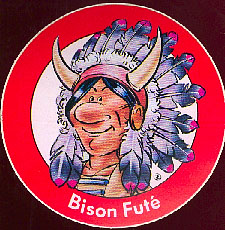
The editorial raises another specter. It intimates that the Seneca, Mohawk and Oneida Indian nations are controlled by gaming interests, "the same white guys hiding behind the curtain." These tribes are perfectly capable of determining their interests and running their own business affairs — with or without partners — but The Journal prefers the image of Wizard of Oz characters pulling the levers of a make-believe Indian world. Nothing could be more insulting to American Indians than the subtext evoked by The Journal.
The Wizard was after all, a character created by L. Frank Baum, who, ten years before he penned his famous book, published the Saturday Pioneer, a weekly newspaper in Aberdeen, S.D. Before and after the Wounded Knee Massacre of December 28, 1890, Baum published two editorials that called for the annihilation of the Sioux people. Following the murder of Sitting Bull, Baum published the statement on December 20, 1890 that with Sitting Bull's demise: "the nobility of the Redskin is extinguished, and what few are left are a pack of whining curs who lick the hand that smites them. The Whites, by law of conquest, by justice of civilization, are masters of the American continent, and the best safety of the frontier settlements will be secured by the total annihilation of the few remaining Indians. Why not annihilation? Their glory has fled, their spirit broken, their manhood effaced: better that they die than live the miserable wretches that they are."
After the Wounded Knee massacre Baum's newspaper on January 3, 1891 reprised its earlier genocidal message: "The Pioneer has before declared that our only safety depends upon the total extirmination [sic] of the Indians. Having wronged them for centuries we had better, in order to protect our civilization, follow it up by one more wrong and wipe these untamed and untamable creatures from the face of the earth. In this lies future safety for our settlers and the soldiers who are under incompetent commands. Otherwise, we may expect future years to be as full of trouble with the redskins as those have been in the past." Baum was born in 1856 in Chittenango, N.Y.
By denigrating American Indian nations and delivering a fusillade of misrepresentations, factual errors, and disparaging stereotypes The Wall Street Journal has done little better than perpetuate the rather bleak journalistic tradition of Baum's Saturday Pioneer.
The Wall Street Journal strikes back
From The Day:
Tribal casinos a rotten deal for N.Y.
Published on 04/05/2002
This editorial is reprinted with permission of The Wall Street Journal, which published it yesterday.
Last month these columns criticized New York Gov. George Pataki's midnight legislation to create six new Indian-run casinos in his state, part of a national gambling boom. We've since been called racist and part of a "growing national backlash against Indians." Maybe we're getting somewhere.
"Indian Country Today," the nation's leading Native American newspaper, accused us of "perpetuating Native American stereotypes" because we referred to "Big Chief Pataki," among other perceived insults. We thought we were having fun with Mr. Pataki, not Indians. But in any case the race card has become the first refuge of scoundrels in American politics. The folks who play it are usually trying to deflect attention from the real issues.
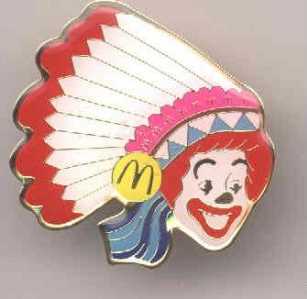
The very big issue here is a $10 billion Indian casino industry that has grown with little public scrutiny into a huge political force. Indian Country Today is part of that force, since it's funded by gambling interests with a major stake in Mr. Pataki's casino deals. The paper is controlled by the Oneida Nation of New York, which already owns one casino in the state and is vying for the right to build another.
We were especially amused by Indian Country Today's assertion that "Indian gaming is among the most regulated industries in America." The rest of American business should be so lucky. The industry is regulated by the National Indian Gaming Commission, which has a budget of $8 million, or a fraction of the millions that the Indian casino lobby shovels at politicians. A former NIGC regulator-turned-lobbyist told Indian casino executives last year that "your best strategy is to "keep the commission at its current size," The Boston Globe has reported.
Gaming advocates like to cite "cooperation" with law enforcement, but the reality is that Indian casinos are largely self-regulating. If Congress is going to get serious about casino corruption, it might give the NIGC some teeth. The commission is responsible for monitoring more than 300 Indian gambling halls, but it has fewer than 30 full-time auditors and investigators. New Jersey gaming authorities, by contrast, employ more than 200 auditors for only 12 casinos.
Another reality is the presence of criminal interests in the industry. The chief of the FBI's Organized Crime Section described mob influence at casinos this way to the Los Angeles Times: "Our position is, "If you build it they will come.' They understand not only the mechanics of gambling, but also how the industry works: the labor unions, the equipment, the pawn shops, the trucking industry, the housekeeping services, all the collateral industries. They set up kickback schemes, extortion schemes, sweetheart contract schemes."
And come they did to Indian country. The Minneapolis Star-Tribune has reported links between Minnesota Indian casinos and "East Coast Mafia families"; companies named in the report denied knowing of any involvement with mob figures, saying any ties had been "coincidental and indirect." In California, the Indians say they have turned the corner on corruption, but through the 1990s they were plagued by mob takeover attempts, with convictions of a tribal council member and figures linked to the Pittsburgh and Chicago Mafia. In Florida last year, the St. Petersburg Times reported that the Seminole Tribe's own police investigators had learned of a link to organized crime figures — and were fired after bringing the information to the NIGC. Indian gaming looks like a corruption scandal waiting to happen.
It already is a political scandal. Po litical figures in both parties have abused the federal tribal recognition process, which has granted groups of dubious lineage official tribal status and with it the right to open casinos. A recent report by the Interior Department's Inspector General found that the two Clinton-era heads of the Bureau of Indian Affairs — Kevin Gover and Michael Anderson — abused their authority by granting recognition to six tribes, despite objections from BIA professionals. Messrs. Gover and Anderson both left BIA to join law firms working on Indian casino deals.
And here's the best part: Mr. Gover is now a columnist for Indian Country Today
Interior's IG also reported that an "egregious" share of the profits at Connecticut's Mohegan Sun Casino were taken by gambling mogul Sol Kerzner. He and his partners will rake in about $1 billion of profits through 2014, according to The Boston Globe. The NIGC was powerless to stop Mr. Kernzner from fashioning a loophole that allowed him to evade Congressional regulations limiting non-Indian partners to no more than 40 of the Mohegan tribe's profits.
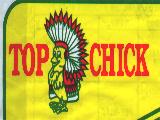
We think it's a sure bet that the same is slated for New York, thanks to Mr. Pataki and the casino lobby. Indian Country Today would better serve its readers if it tried to uncover such rotten deals instead of flacking for them.
Natives respond
From Indianz.com:
Oneida Nation on Indian Casinos Today
FRIDAY, APRIL 5, 2002
The following is a statement from David Hollis, director of communications for the Oneida Indian Nation of New York, in response to "Indian Casinos Today." April 5, 2002.
For the second time in about a month, The Wall Street Journal has shown that is willing to sacrifice journalistic standards to advance its crusade against American Indians and Indian gaming. On April 4, the Journal cavalierly dismissed complaints that a previous editorial was filled with objectionable Indian stereotypes ("Big Chief Pataki," "Great White Father Pataki," "pow-wows with the Mohawk and with the Oneida Indian Nation ...", "traded beads with unions ..."), and claimed they were just "having fun."
American Indians have never found that kind of hate speech to be fun. Neither have they enjoyed being belittled or reduced to racial stereotypes or shoved to the margins of society by the likes of The Wall Street Journal. And, when Indians, including Oneidas, objected, the response from the Journal was even more flippant: "... the race card has become the first refuge of scoundrels in American politics. The folks who play it are usually trying to deflect attention from the real issue."
The real issue remains that The Wall Street Journal obviously believes that it is acceptable to slander and slur American Indians, that it can engage in hateful speech and laugh about it on its editorial page.
LETTER: NIGA Responds To SF Newspaper Column
This article fundamentally misunderstands Indian Tribes and Indian gaming. Indian Tribes are indigenous nations that have survived epidemic disease, genocidal wars, starvation and poverty over the last 500 years. As you know from your history books and we know from our bedtime stories, our grandfathers fought for our rights to self-government. When we exercise our rights to self-government to fund tribal government through Indian gaming, it is not a state-granted monopoly – it is a fundamental exercise of inherent tribal authority.
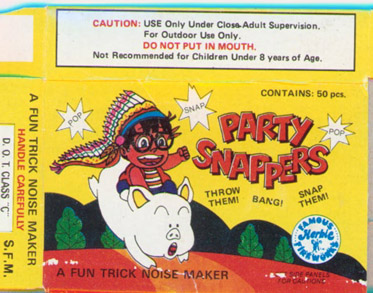
REBUTTAL: National Indian Gaming Association Rebuts Wall Street Journal Editorial
Dear Editor:
At the National Indian Gaming Association, we were disappointed by your editorial of April 4, 2002. Editorials such as this are a true disservice to the 300,000 hard working Indian and non-Indian individuals that are employed due to Tribal government gaming.
Your editorial implies that Indian gaming is unregulated and corrupt with mob influence. Both assertions are completely false. The fact is that Indian gaming is a highly regulated industry, subject to regulation at the Tribal, State, and Federal Government levels. After a year of studying this very issue, even one of Indian gaming's most ardent detractors, Paul Moore, Chairman of the Indian gaming subcommittee of the National Gambling Impact Study Commission, stated: "Native American gambling operations have two key hurdles to overcome in the perceptions of the American public: that they are unregulated and that they are making money hand over fist. Neither is true."
At the Tribal Government level, Indian Tribes invest $160 million annually to regulate Indian gaming through tribal gaming commissions and staff. Your editorial discounted those efforts as mere "self-regulation." To us, self-regulation is self-government. At the same time that American patriots dumped tea in Boston Harbor to promote American self-government, our patriotic forefathers fought to preserve American Indian self-government. For its part, the United States guaranteed tribal self-government through treaties that involved the cession of millions of acres of land.
Moreover, our Tribal gaming commissioners and regulators are highly educated professionals with exemplary qualifications and Indian Tribes have established world class, state of the art gaming operations and regulatory systems. For example, the Director of Security and Surveillance at one of Tribes in Minnesota is a 24-year veteran of the Minneapolis Police Force who served on the SWAT Team, the Homicide Unit, and Emergency Response Unit. The Executive Director of a California tribal gaming commission has over 30 years of law enforcement experience serving as Assistant Chief Inspector for the New Jersey Casino Control Commission for 11 years and as Vice Inspector for the Philadelphia Police for over 17 years. And there is a Louisiana Tribal Gaming Commission Chairman who has over 20 years of military experience, including serving as a Navy Military Policeman and a U.S. Coast Guard Port Security officer. And there are many more examples where these came from The capability, qualifications and dedication of Tribal operators, regulators and regulatory agencies are equal to their counterparts of the States and federal government and cannot be dismissed with the wave of a pen.
At the State level, the Indian Gaming Regulatory Act established a system of Tribal-State Compacts to govern Class III Indian Gaming. Thus, State government agencies participate in the regulation of Class III Indian gaming at levels negotiated at through compacts. For example, in New York, the Oneida and Mohawk Tribes work with the New York State Racing and Wagering Board in regulating their gaming facilities. In Connecticut, the Mashantucket Pequot Tribe has a State Police Office in their Indian gaming facility. Overall, Indian Tribes reimburse the States over $40 million annually for state regulation of Indian gaming.
At the Federal level, Indian Tribes fund the National Indian Gaming Commission through fee assessments at a level of $8 million annually and the NIGC coordinates with the Tribal and State government agencies. In addition, through the Money Laundering Suppression Act, Congress involved the Department of Treasury in monitoring large cash transactions at Indian gaming facilities, just as it does for Atlantic City gaming facilities. Under Title 18 USC § 1163, the FBI and the Justice Department have authority to prosecute anyone who would cheat, embezzle, or defraud an Indian gaming facility – that applies to management, employees, and patrons. In a July 2001 review of Indian gaming by the Justice Department's Office of Inspector General, the FBI reported that "none of their Indian country investigations of isolated allegations of organized crime have been substantiated." In other words, the FBI is watching out for organized crime, and the comprehensive network of Tribal, State, and Federal system of regulating Indian gaming has been remarkably effective.
We hope that you understand that the integrity of Indian gaming is something that Tribes take very seriously. Gaming is a resource for Indian Tribes to provide much needed services to their people, just like State lotteries. After standing by while the federal government failed to fulfill its treaty obligations for 500 years, gaming is finally a means for Tribes to re-build their economies. Reservations that were once ruinous wastelands littered with dilapidated buildings and crushed by poverty, are finally getting those things that most Americans take for granted: schools, hospitals, roads, water and sewer systems, and police and fire protection. That we are finally achieving self-sufficiency is not something that we take lightly. Nor do we take lightly our obligation to maintain responsible gaming facilities.
Finally, your reference to "Big Chief Pataki" in a prior editorial does appear to be intended to conjure up a cartoonish image of the Governor based on a stereotypical use of American Indian references. Such references do poor justice to the Native Americans have proudly served this Country in every war in record numbers and to the Indian ironworkers who built the World Trade Center and are now back there assisting in the clean up and the rebuilding of America's spirit.
Sincerely,
Ernest Stevens, Jr., Chairman
National Indian Gaming Association
Comment: Beyond the "big chief" references, the notions that mobs run Indian casinos and that all Indians are getting rich are also stereotypes.
The battle continues....
The Wall Street Journal's derivative fiction
Posted: April 12, 2002 -- 11:00AM EST
To be attacked by the April 4 lead editorial in The Wall Street Journal is both a high honor and a thrill. We are honored to be taken as a serious target by one of the greatest institutions in the last 50 years of American journalism. We are thrilled for a reason best expressed by the young Winston Churchill, "Nothing is more exhilarating in life than to be shot at without effect.
Minnesota gaming officials stunned by The Wall Street Journal's spin
Posted: May 27, 2002 -- 6:00pm EST
by: John McCarthy / Executive Director / Minnesota Indian Gaming Association
Tribal leaders of the Minnesota Indian Gaming Association are stunned and appalled at the May 7 story by Joel Millman ("Burgeoning Indian Casinos Get Ahead in Part by Dodging Labor Regulations"). This hatchet job is so full of factual errors and bias that it shouldn't be called journalism at all, but "pulp fiction." We resent this attempt by The Wall Street Journal to paint the Viejas Band, and indirectly all tribal casinos, as irresponsible and heartless employers who use sovereignty as a convenient means of dodging their obligations to employees and customers.
The Wall Street Journal: Who needs regulation now?
Posted: August 16, 2002 -- 9:10am EST
All the while The Wall Street Journal was engaged in its duplicitous pursuit of imaginary regulatory lapses in the Indian gaming industry and purported corruption in the federal recognition process of Indian tribes, its own house was burning to the ground. How apropos that at the heart of Wall Street's troubles lies weak regulatory oversight of public corporations that had devised ways to deceive their communities of investors and transfer, with unmitigated greed, hundreds of millions of dollars to illegitimate corporate aristocracies.
The Wall Street Journal is wrong, again
Posted: September 06, 2002 -- 10:15am EST
In a recent editorial mostly machine-gunning California's growing re-turn to liberal thinking and pragmatic policies, particularly in human services and environmental concerns, The Wall Street Journal went out of its way, once again, to insult American Indian peoples, excoriating Native traditional "oral memory" knowledge as "ripe for abuse." What particularly got the Journal's goat ("California's Liberal Flakeout," Aug. 21, 2002) is a bill to assist designation and protection of sacred sites by Native Americans, proposed by Senate President John Burton. The bill would establish formal respect for oral tradition about special places and thus, according to the Journal, "let Native Americans block development."
The Wall Street Journal's barrier
Posted: September 13, 2002 -- 11:15am EST
No sooner had we answered the last Wall Street Journal editorial slamming Indians — in that case, oral tradition around sacred sites, they were in print once again, this time excoriating Native gaming as an economic base. It seems rather odd for The Wall Street Journal to be sustaining this kind of attack on what is arguably one of the only viable financial boosts Indian country has secured in centuries. Once again, the Journal ignores the multiple benefits for community building and the incipient role that gaming economic opportunity brings to previously deeply impoverished tribes and areas of the country.
Related links
The Wall Street Journal's hatchet job on Indians
The facts about Indian gaming
Tipis, feather bonnets, and other Native American stereotypes
The harm of Native stereotyping: facts and evidence
|
. . . |

|
All material © copyright its original owners, except where noted.
Original text and pictures © copyright 2007 by Robert Schmidt.
Copyrighted material is posted under the Fair Use provision of the Copyright Act,
which allows copying for nonprofit educational uses including criticism and commentary.
Comments sent to the publisher become the property of Blue Corn Comics
and may be used in other postings without permission.